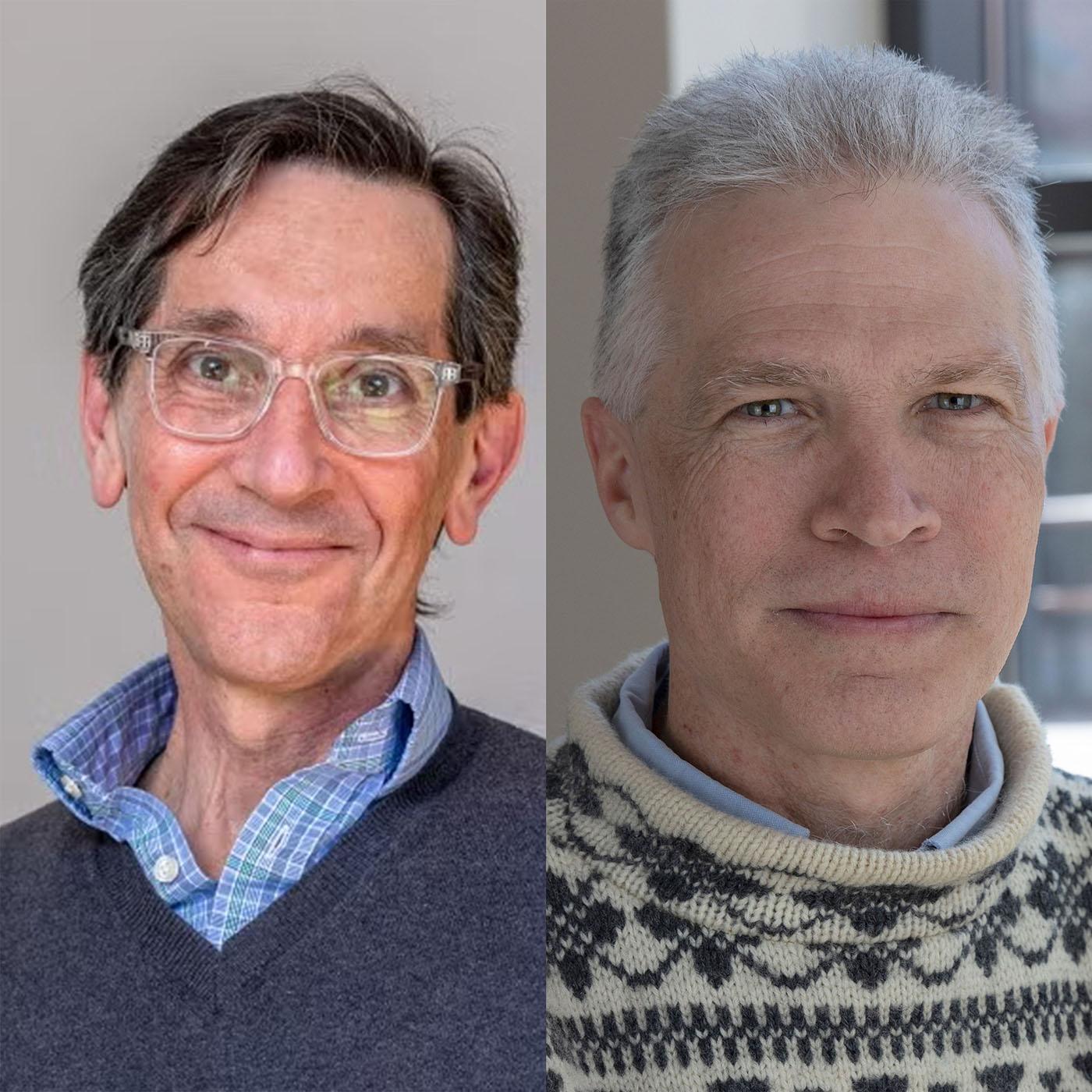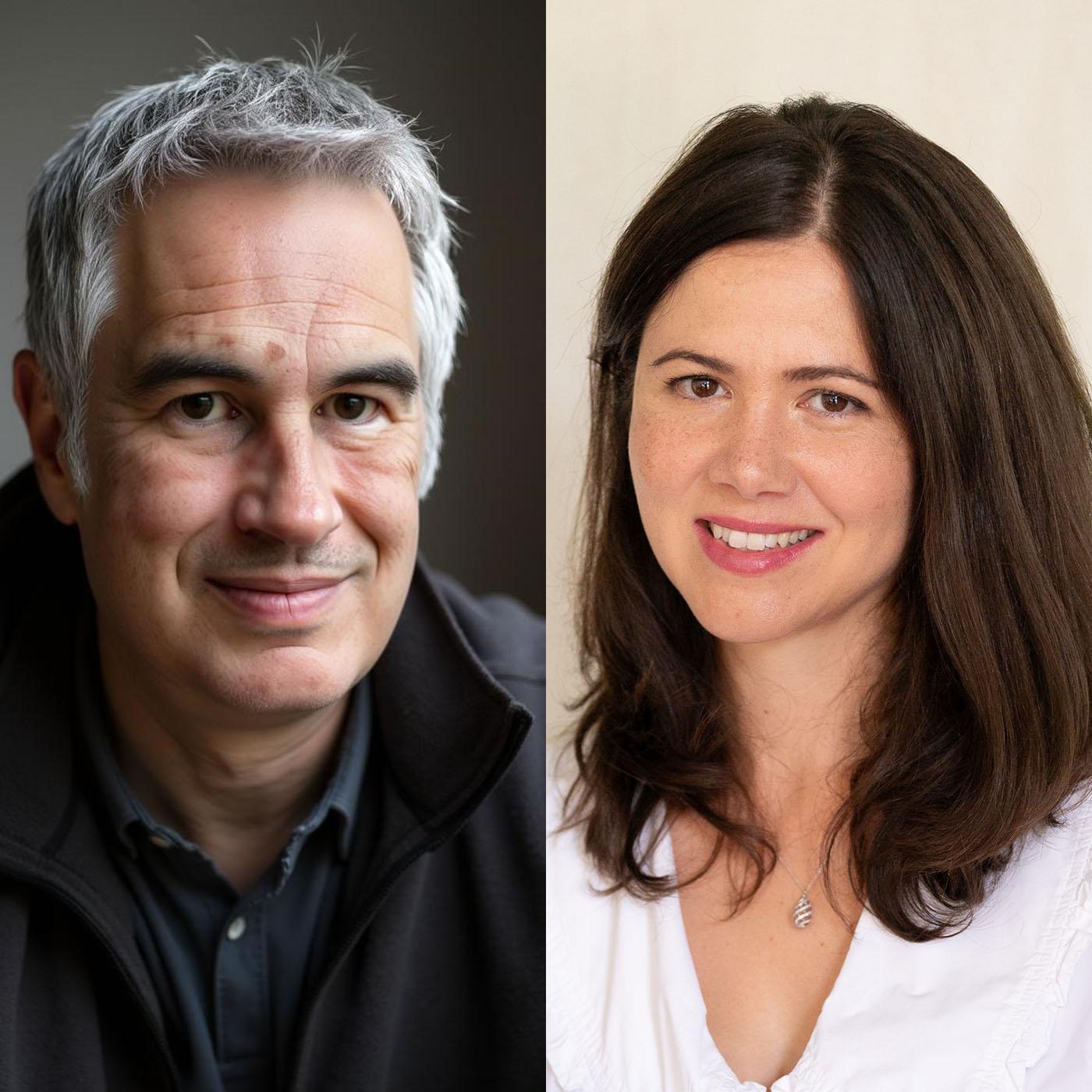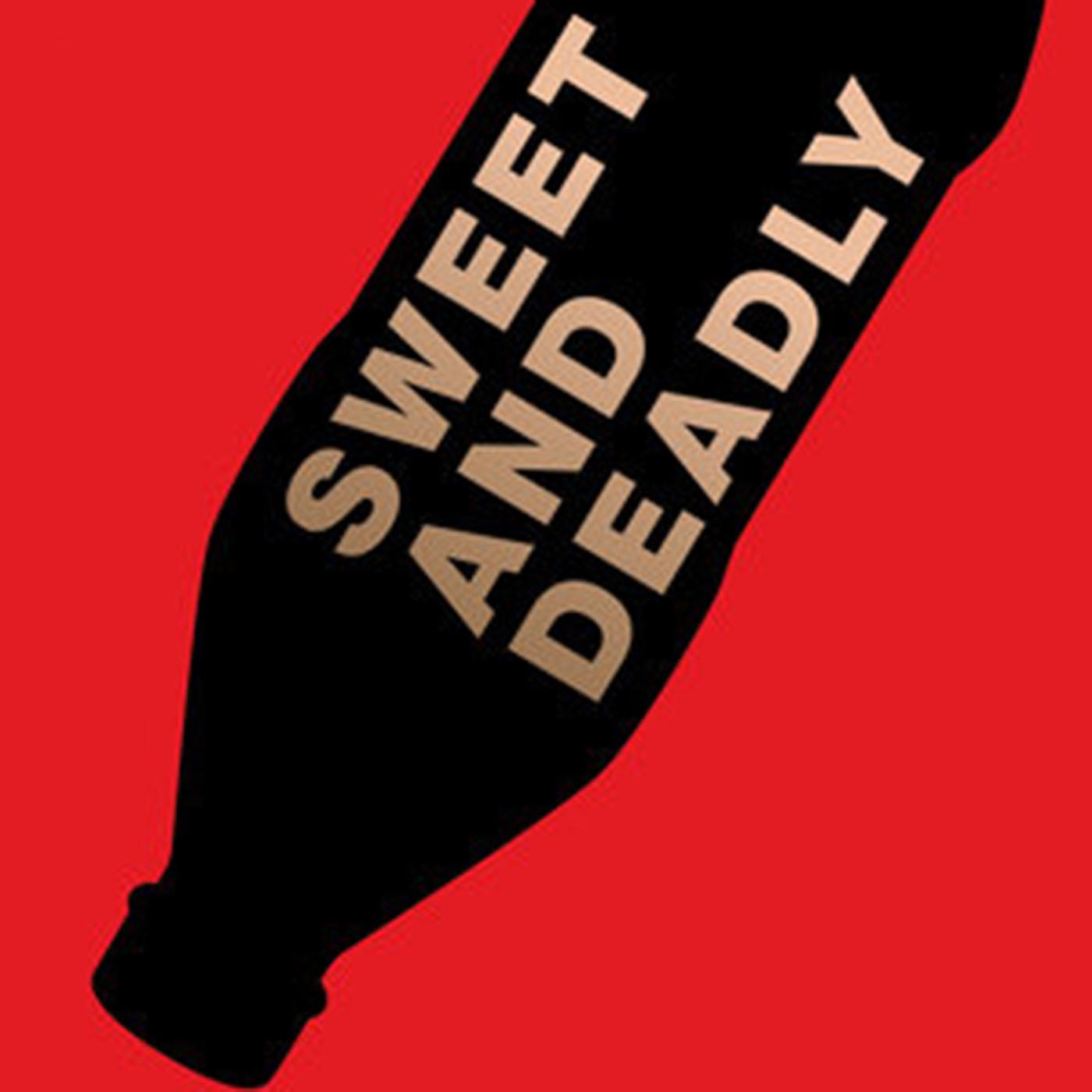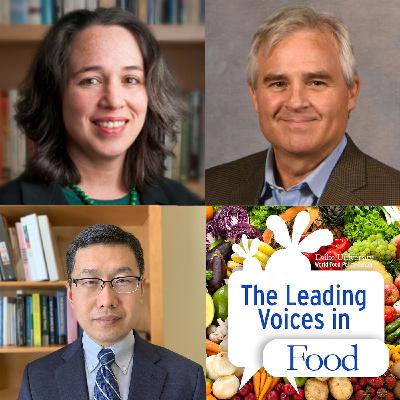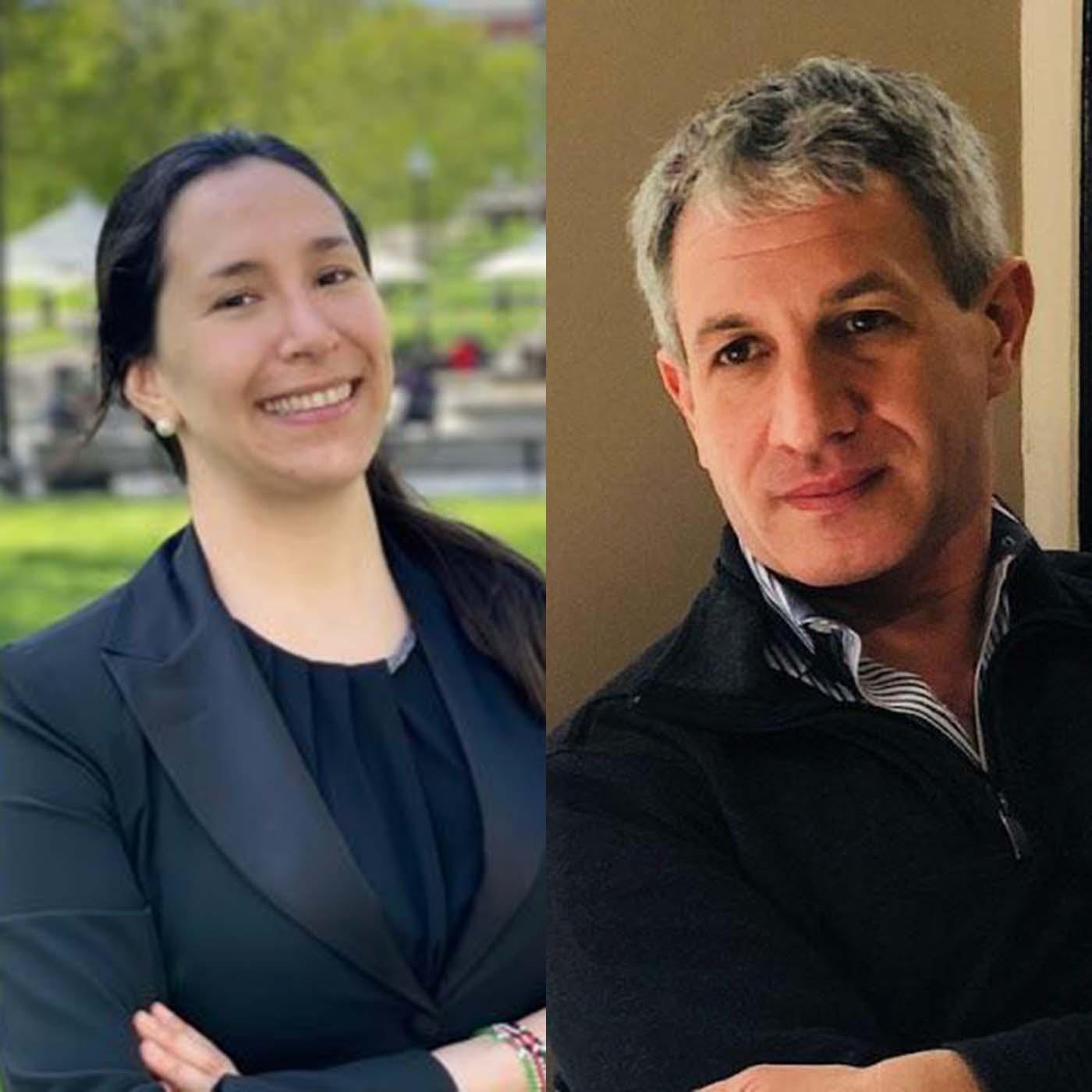E275: Against the Grain - A Plea for Regenerative Ag
Description
I was at a professional meeting recently and I heard an inspiring and insightful and forward-looking talk by journalist and author Roger Thurow. Roger was a reporter for the Wall Street Journal for 30 years, 20 of them as a foreign correspondent based in Europe and Africa. Roger has written a number of books including one on world hunger and another what I thought was a particularly important book entitled The First 1000 Days, A Crucial Time for Mothers and Children and the World. Now comes a new book on farmers around the world and how they are coping with the unprecedented changes they face. It was hearing about his book that inspired me to invite Mr. Thurow to this podcast and thankfully he accepted. His new book is entitled Against the Grain: How Farmers Around the Globe are transforming Agriculture to Nourish the World and Heal the Planet.
Interview Summary
I really admire your work and have loved the new book and what I've read before. So, let's talk about something that you speak about: the wisdom of farmers. And you talk about their wisdom in the context of modern agriculture. What do you mean by that?
Farmers of the world, particularly the small holder farmers, indigenous farmers, family farmers as we know them in this country, they're really bold and pioneering in what they're doing. And these farmers, kind of around the world as we go on this journey around the world in the book, they've seen their efforts to earn a living and feed nourish their families and communities turn against. So, while conforming to the orthodoxies of modern industrial agriculture practices: the monocropping, the increased use of fertilizers and pesticides and insecticide chemicals, the land expansion, at the expense of savannas, forest wetlands, biodiverse environments. In the face of this, they've really witnessed their lands degrading. Their soils depleting. Their waters dwindling. Their pollinators fleeing. Their biodiversity shrinking and becoming less diverse. Their rains becoming ever more mercurial., Their temperatures ever hotter. And their children and families and their communities becoming ever more hungry and malnourished.
So, they've really seen the future of their own impacts on the environment, and then the impacts of changing climates, of more extreme weather conditions. They've really seen this future. They've experienced, lived it, and it's ugly what they see and what they've experienced on their farms. So, that's their wisdom, and they'll really tell us that it doesn't have to be that way if we listen. That such a future isn't inevitable. Because out of their desperation, you know, these farmers have begun farming against the grain. So, there's the title of the book Against the Grain of this modern agriculture orthodoxy to reconcile their roles as both food producers and nourishers of us all, and stewards in the land. They're pushing forward with practices like agroforestry, agroecology, regenerative agriculture, kind of whatever one calls it. Farming with nature instead of bending nature to their will, which is what we too often done and with kind of the larger modern industrial agriculture techniques. So, farming with nature as opposed to against it as they strive to both nourish us all and heal our planet.
Give us a sense, if you will, about how important these small farmers are to the world's food supply? So how important are these?
They're really important. Extremely vital for the global food chain, certainly for their own families and communities, and their countries. In a lot of places, say in Africa, in many of the countries, on the continent, it's the small holder farmers that are producing the majority of the food. In their communities and in their countries and across the continent. Still not enough. Africa then must become a substantial importer of food. But these small holder farmers are so key and the more success that they have in feeding their communities and families, the more success we all have then in this great goal of ending hunger and malnutrition.
Equally important, these farmers are the stewards of the land. And they're on the front lines of these environmental challenges. The threats from the changing climate and more extreme weather conditions. They're the first impacted by it, but they also increasingly see, and that's what stories in the book are about, how they see that their own actions are then impacting their environment and their climates. And this is why they're so important for all of us is that they find themselves at the center of what I think is this great collision of humanities two supreme imperatives. One, nourish the world, so nourish us all. That's the one imperative. And then the other imperative, kind of colliding with that, is to preserve, protect, and heal our planet from the very actions of nourishing us. So, these are these two colliding forces. You know as I think we already know agriculture and land use activities are responsible for about a third of the greenhouse gases impacting our climate and weather patterns. And the greatest impact of this then is felt by the farmers themselves. And they see what's happening to their soils and the depletion of their soils. Their lands being so terribly degraded by their very actions of nourishing their families and then contributing to nourishing us all. I think that's why they're so important for us. I mean, there's certainly kind of the canaries in the coal mine of climate change. Of these environmental challenges that we're all facing. And how they're then able to adjust their farming, as we kind of see in the book and that's this wisdom again. How can we learn from them and what are they seeing in their own situations. They're then having to adjust because they have no other options. They either have to adjust or their farms will continue to degrade and their children and their families increasingly malnourished and hungry.
Roger let's talk through this issue of colliding imperatives just a bit. The fact that protecting the planet and nourishing people are colliding in your view, suggests that these two priorities are competing with one another. How is that the case?
Some of the techniques of the monocropping, which is basically planting one crop on the same plot of land year after year, after year, season after season, right? And by doing that, these crops that are pulling nutrients out of the soil, many of the crops don't put nutrients back in. Some of them do. They'll restore nitrogen they'll put other nutrients in. But with the mono cropping, it's kind of the same depletion that goes on. And, has been particularly practiced in this country, and the bigger farmers and more commercial farmers, because it's more efficient. You are planting one crop, you have the same technique of kind of the planting and tending for that. And the harvesting, kind of the same equipment for that. You don't need to adjust practices, your equipment for various other crops that you're growing on that land. And so, there's an efficiency for that. You have then the price stability if there is any price stability in farming from that crop. That can be a weakness if the price collapses and you're so dependent on that. And so, the farmers are seeing, yeah, that's where the degrading and the weakening their of their soils comes from. So, what's their response to that when their land's degrading? When their soils become weak, it's like, oh, we need additional land then to farm. So they'll go into the forest, they'll cut down trees. And now there's virgin soil. They do the same practices there. And then after a number of years, well that land starts depleting. They keep looking for more. As you do these things, then with the soils depleting, the land degrading, becoming really hard, well, when the rain comes, it's not soaking in. And it just kind of runs away as the soil becomes almost like concrete. Farmers aren't able to plant much there anymore or get much out of the ground. And then so what happens then if the water isn't soaking into the soil, the underground aquifers and the underground springs they become depleted. All of a sudden, the lakes and the ponds that were fed by those, they disappear. The wildlife, the pollinators that come because of that, they go. The bushes, the plants, the weeds that are also so important for the environment, they start disappearing. And so you see that in their efforts to nourish their families and to nourish all of us, it's having this impact on the environment. And then that drives more impacts, right? As they cut down trees, trees drive the precipitation cycle. Tthen the rains become ever more mercurial and unpredictable. Without the trees and the shade and the cooling and the breezes, temperatures get hotter. And also, as the rains disappear and become more unpredictable. It has all this effect. And so, the farmers in the book, they're seeing all this and they recognize it. That by their very action


